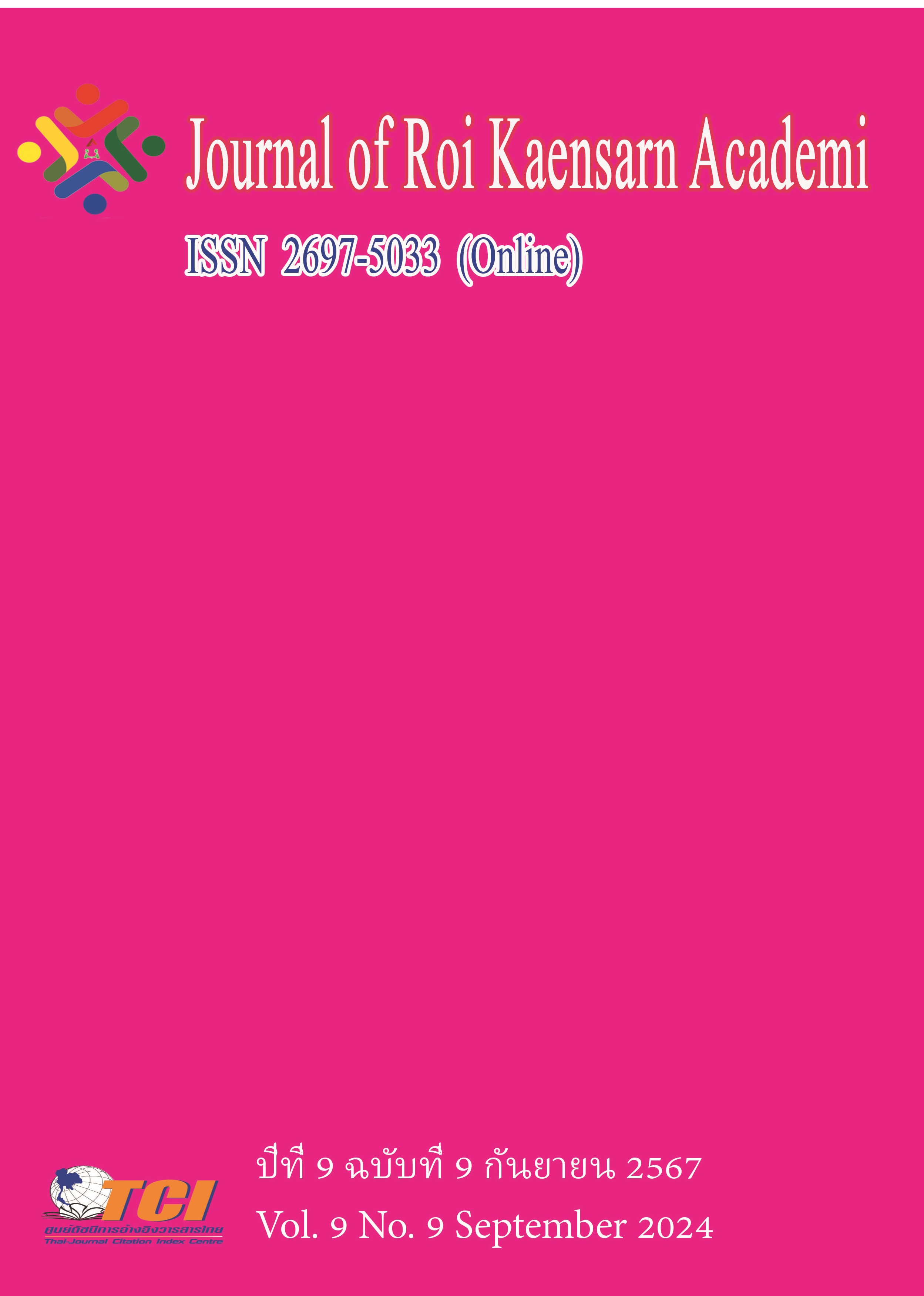The Elucidating the Mediating Dynamics of Teacher Cognition and Cultural Adaptability in Disaster Education an Exploratory Investigation for Enhancing Educational Resilience
Main Article Content
บทคัดย่อ
This research aims to elucidate the cognitive disparities concerning disaster education among university faculty members spanning various geographical regions, positing teacher cognition and cultural variances as crucial mediators in the implementation and effectiveness of disaster pedagogy. Conducted as a rigorous empirical investigation, the research sample comprised 180 academic instructors, meticulously selected from a dozen reputable universities located in the provinces of Sichuan, Jiangsu, Hebei, and Guangdong across the expansive terrain of China. Data collection was facilitated through comprehensive questionnaires and insightful in-depth interviews. The research analysis employed a robust analytical framework, integrating descriptive statistical methods to delineate underlying patterns, vector autoregression (VAR) models to predict dynamic interdependencies, and mediation effect tests to discern subtle influences.
The research results found that the geographical context exerts a profound and positive influence on the efficacy of disaster education, with the malleability of pedagogical cognition and the spectrum of cultural idiosyncrasies partially mediating the relationship between regional attributes and educational outcomes. Essentially, the regional milieu proves instrumental in enhancing the execution and subsequent effectiveness of disaster education by augmenting educators' cognitive proficiencies and fostering their cultural adaptability. This study underscores the imperative of embedding regional nuances into the framework of academic disaster education, advocating for the enhancement of educators' professional acumen and the cultivation of cultural adaptability. It offers strategic guidance aimed at elevating the quality and efficacy of disaster education, thereby empowering future generations with the cognitive capacity to navigate and mitigate the complexities of calamitous events.
Article Details
เอกสารอ้างอิง
Alfred, D., Chilton, J., Connor, D., Deal, B., Fountain, R., Hensarling, J., & Klotz, L. (2015). Preparing for disasters: Education and management strategies explored. Nurse Education in Practice, 15 (1), 82–89.
Baron, R. M., & Kenny, D. A. (1986). The moderator-mediator variable distinction in social psychological research: Conceptual, strategic, and statistical considerations. Journal of Personality and Social Psychology, 51 (6), 1173-1182.
Chian, S. C., Wilkinson, S. M., Whittle, J. K., Mulyani, R., Alarcon, J. E., Pomonis, A., Saito, K., Fraser, S., Goda, K., Macabuag, J., Offord, M., Hunt-Raby, A. C., Sammonds, P., Franco, G., Stone, H., Ahmed, B., Hughes, F. E., Jirouskova, N. K., Kaminski, S., & Lopez, J. (2019). Lessons learnt from the 2009 Padang Indonesia, 2011 Tōhoku Japan and 2016 Muisne Ecuador earthquakes. Frontiers in Built Environment, 5, Article 73.
Li, S., & Zhang, S. (2021). A comparison of disaster education in the geography curriculum standards of high schools in China and Japan. Geography Teaching, 4, 45-48.
Mao, C., Gao, L., & Wang, J. (2022). A comparative study of disaster education in Chinese and German secondary schools. Reference for Secondary School Geography Teaching, 18, 88-91.
Nguyen, N., Biderman, M., & et al. (2010). A validation study of the Cross-Cultural Adaptability Inventory. International Journal of Training and Development, 14 (2), 112-129.
Quan, X. (2017). The logical reasoning of teachers’ cognitive academic burden and optimization strategies. Education Theory and Practice, 20, 49-52.
Yang, H. (2016). Towards culture: Path selection for school disaster education. Journal of Chinese Education, 10, 68-71+83.

